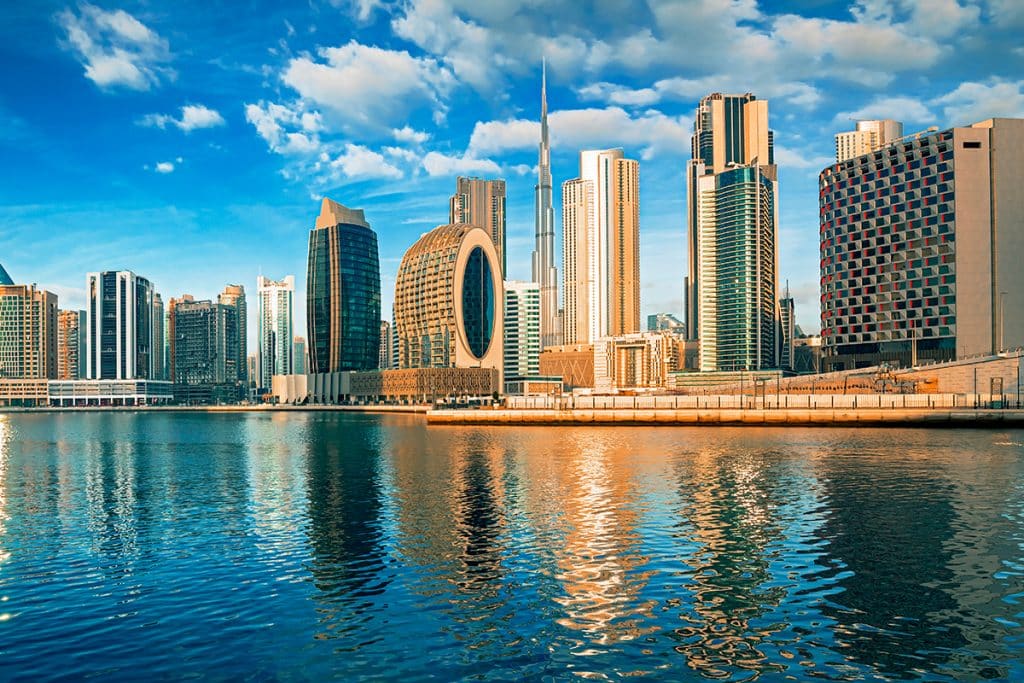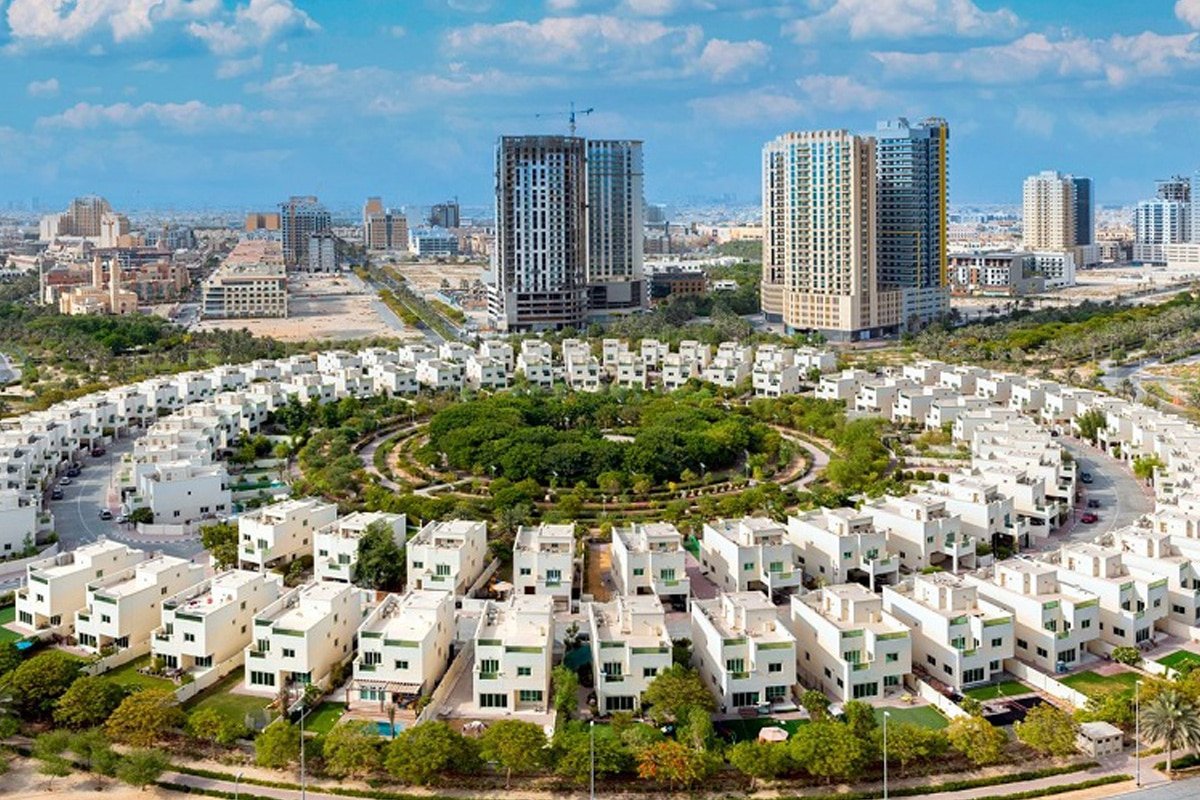The increases are driven by strong investor sentiment, rising population figures, and a steady flow of global capital into the emirate.
At the same time commercial real estate sales increased by 18.2 per cent year-on-year, with a 29.5 per cent increase in the total value of transactions.
Dubai real estate 2025
Despite the usual seasonal dip from Q4, Dubai’s residential market delivered broad-based growth. Off-plan sales were up 23.9 per cent and secondary transactions rose 20.3 per cent, with continued demand across both ends of the price spectrum.
Apartments remained the dominant property type, comprising 76 per cent of all residential transactions.
Jumeirah Village Circle retained its lead in both off-plan and resale apartment sales, supported by attractive pricing, strong rental yields, and proximity to major road networks.
Secondary market momentum was also evident in Business Bay, Dubai Marina, and Downtown Dubai — key areas sought by investors and end-users alike for their connectivity, proximity to amenities and enduring rental demand.
The villa segment was a clear standout for growth, with transactions increasing by 80.6 per cent year-on-year.
The surge was primarily led by off-plan activity in emerging, master-planned communities such as The Valley, Emaar South, and Damac Islands.
The total transaction value for villas rose by 55.1 per cent, pointing to a growing preference for more affordable, family-oriented housing in newer developments on the fringes of Dubai.
In the luxury and ultra-luxury segment, Dubai maintained its momentum. Sales above AED10m ($2.7m) grew by 29 per cent from Q1 2024, and are now up 185 per cent from Q1 2022.

Palm Jumeirah and the rapidly emerging Palm Jebel Ali accounted for 31 per cent of sales over AED10m ($2.7m), supported by demand for ultra-luxury, waterfront villas.
Noteworthy deals included the AED425m ($116m) sale of the Marble Palace in Emirates Hills and an AED115m ($31.3) villa in Palm Jumeirah’s EOME community, brokered by Engel & Völkers Private Office Advisor Fadi Alsalem.
Dubai continues to establish itself as the world’s leading destination for high-net-worth individuals.
According to Henley & Partners, the number of resident millionaires has grown by more than 100 per cent in the past decade, with the UAE attracting more HNWIs than any other country in 2023 and 2024.
Today, Dubai is home to more than 81,000 millionaires, 237 centi-millionaires, and 20 billionaires – a figure that is set to rise as global wealth relocates toward stable, high-performing destinations.
Dubai’s rental market also reflected sustained demand, with more than 51,000 new residents added in the first quarter alone.
While rent increases show signs of stabilising, luxury apartments in Bluewaters (+14.1 per cent) and villas and townhouses in Dubai Hills Estate (+33.8 per cent), and Arabian Ranches (+20.6 per cent) registered significant year-on-year growth.
The commercial real estate continued its upward trajectory, with office, retail, and mixed-use segments all posting gains.
Office sales transactions increased by 40 per cent, and the average price per sq ft rose 15 per cent to AED1,676 ($456).

Business Bay and JLT remained leading hubs for Grade A office space, recording 315 and 217 sales respectively.
Off-plan interest in Capital One helped position Motor City as a leading office investment destination in Q1.
Retail sales, meanwhile, rose 6 per cent year-on-year, with concentration in thriving residential and mixed-use communities such as Business Bay, Arjan, and JVC.
Leasing activity also accelerated, with a 17.6 per cent quarter-on-quarter increase across the commercial sector.
Office rents grew by 23 per cent year-on-year to AED112 ($30.5) per sq ft, led by demand in core business districts such as Business Bay, JLT, and Dubai Investments Park.
While retail rents remained steady at AED240 ($65) per sq ft, increasing appetite for Grade A space suggests upward pressure on pricing may emerge in the latter half of the year.
Daniel Hadi, CEO of Engel & Völkers Middle East, said: “In the face of global economic uncertainty, Dubai’s real estate market continues to show excellent fundamentals, with cross-sector growth and compelling returns for investors.
“Demand is being fuelled not just by regional wealth and migration, but by strategic policy, infrastructure investment, and the city’s global positioning as a future-forward hub for living and business.”
Recent infrastructure announcements, including the acceleration of the Etihad Rail project, the rollout of the Dubai Loop system, and strategic road upgrades in central business zones, are expected to further reinforce the city’s competitive edge.
Major commercial projects announced in Q1 2025, such as the AED5bn ($1.3bn) redevelopment of Mall of the Emirates also signal strong confidence from Dubai’s top developers in the long-term resilience of the city’s retail and consumer sectors.
As Dubai continues to attract global investors, business leaders, and new residents, Engel & Völkers remains optimistic about the outlook for the remainder of 2025.
Hadi said: “From prime residential to commercial real estate, Dubai is increasingly seen as a safe haven for capital and a high-performance market that rewards long-term vision”.





